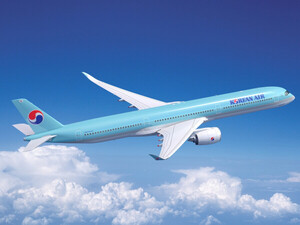
The merger between Korean Air and Asiana Airlines, which began in 2020, is nearing its final stages after four years. Once the merger review is completed, the merged Korean Air will emerge as a top 10 global mega carrier. With a fleet of 238 aircraft, the merged Korean Air is expected to play a significant role in strengthening Incheon Airport’s position as a global aviation and logistics hub. Simultaneously, the integration of the two companies’ low-cost carriers (LCCs) Jin Air, Air Busan, and Air Seoul is also being pursued, which is expected to reshape the domestic aviation industry.
According to the aviation industry analysts on Nov. 28, the European Commission (EC) has completed its merger review of Korean Air and Asiana Airlines and is only left to announce the approval. A senior industry official stated, “The review is complete, and it is understood that only the approval announcement remains.”
Korean Air and Asiana Airlines have been receiving merger approvals from major countries worldwide since they began pursuing the merger in 2020, starting with the approval from the Turkish competition authority in February 2021. However, the EC delayed the merger by issuing a conditional approval in February this year, requiring the sale of cargo business and the transfer of European passenger routes.
Korean Air has met all the conditions required by the EC for the merger. The four European routes (Paris, Rome, Frankfurt, Barcelona) were transferred to T’way Air, and Asiana Airlines’ cargo business was sold to Air Incheon. Having satisfied all the conditions set by the EC, it is expected that the U.S. Department of Justice (DOJ) will not file a lawsuit, thus concluding the merger process after four years.
With the completion of the competition authority approval process, Korean Air plans to pay the remaining 800 billion won of the 1.5 trillion won acquisition payment (excluding 300 billion won in perpetual bonds) by Dec. 20 to finalize the new share acquisition transaction. The balance payment will be made through Korean Air’s participation in Asiana Airlines’ third-party allotment capital increase. After the capital increase, Korean Air’s ownership stake in Asiana Airlines will be 63.88%.
When Korean Air and Asiana Airlines merge, they will become the world’s 11th largest national mega carrier based on passenger transport volume. As of the end of last month, the merged company has 203 passenger aircraft, including 135 from Korean Air and 68 from Asiana Airlines. The cargo fleet consists of 35 aircraft, with 23 from Korean Air and 12 from Asiana Airlines. The scope of the national mega carrier will also expand. Currently, Korean Air operates in approximately 40 countries and 114 cities, while Asiana Airlines operates in 72 cities.
The merged Korean Air plans to accelerate the expansion of its passenger and cargo transport business, centered on Incheon Airport. The airline industry benefits from economies of scale, making larger companies more advantageous in business. This is why mega carriers in the U.S. and Europe are also expanding their size. Delta Air Lines merged with Northwest Airlines, United Airlines merged with Continental Airlines, and American Airlines merged with US Airways. British Airways merged with Spain’s Iberia Airlines, and Air France merged with the KLM Group.
The merger will also lead to the integration of LCCs. Jin Air, Air Busan, and Air Seoul, the LCCs of the two companies, will merge. The merged LCC will become the leader in the LCC industry in terms of fleet size and revenue. Consolidating overlapping routes can enhance competitiveness through cost reduction. This may lead to alliances and mergers among small and medium-sized airlines such as T’way Air, Air Premia, and Eastar Jet.
Challenges remain. There are concerns about workforce reductions and restructuring during the merger process of Korean Air and Asiana Airlines. Additionally, the integration of mileage programs from each company must be addressed. Customers may express dissatisfaction with the integration ratio. A Korean Air official explained, “There will be no artificial restructuring, and the mileage integration will be conducted through sufficient consultation with relevant agencies.”

